PaymentCloud Review
Payment Cloud is a payment processing provider that caters primarily to high-risk businesses and industries.
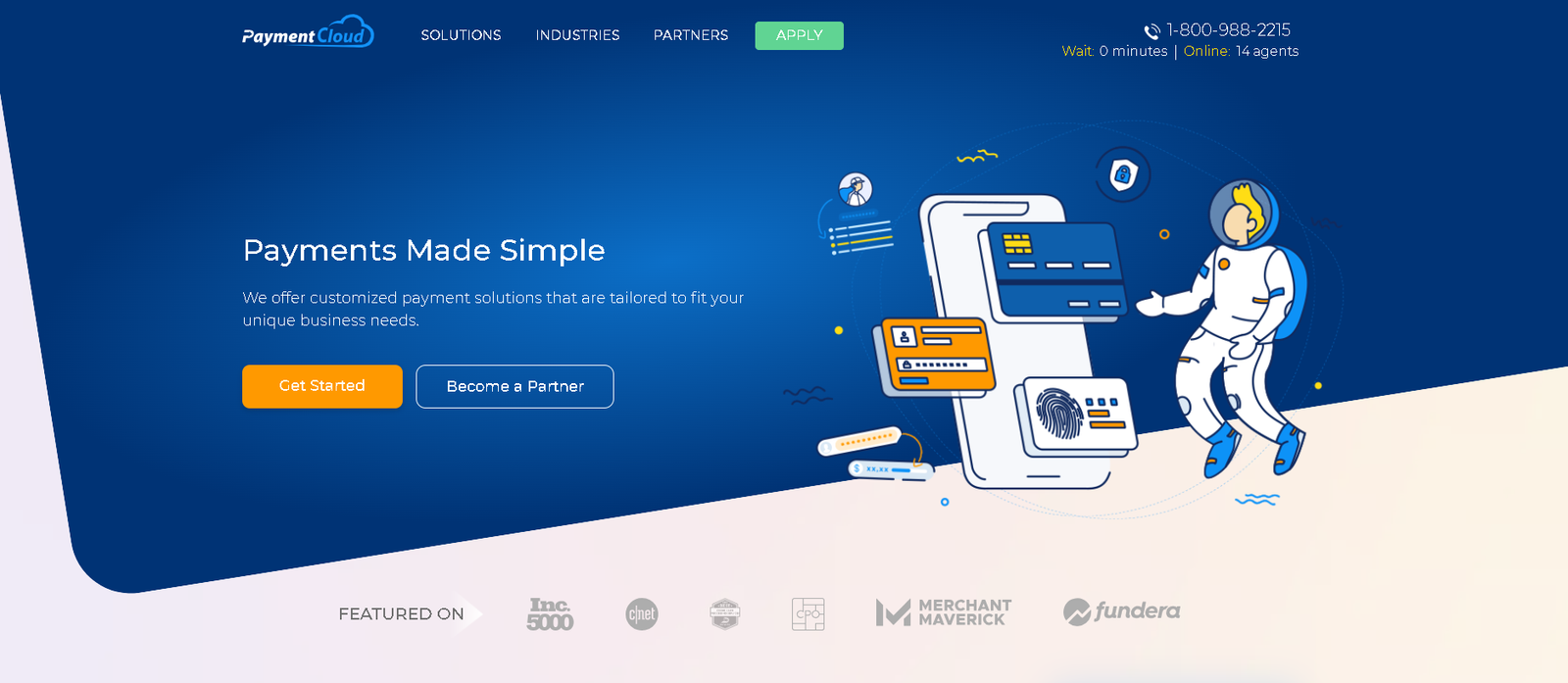
They offer a range of payment solutions designed to handle various types of transactions, with a focus on serving businesses that may face challenges with traditional processors due to their high-risk nature.
4.5
Pricing Plan
Low-risk
Mid-risk
High-risk
Pricing per transaction
Around 2.1% + 15¢
Around 2.7% + 15¢
Around 3.95% + 15¢
Monthly subscription
₹1162
₹1162
₹1162
Ranked 10 from 29 Credit Card Processing
Performance: |4.9|
Payment Cloud delivers robust performance with high transaction speeds and reliability. Its advanced infrastructure ensures that payments are processed swiftly, reducing latency and improving user experience. The platform handles high transaction volumes seamlessly, making it suitable for businesses of all sizes needing efficient payment processing.
Uptime: |4.9|
Payment Cloud boasts impressive uptime, ensuring that your payment processing services are consistently available. With a commitment to minimizing downtime, the platform employs redundant systems and proactive monitoring. This reliability is crucial for maintaining uninterrupted operations and providing a seamless experience for both merchants and customers.
Customer Service: |4.8|
Payment Cloud excels in customer service with dedicated support teams available around the clock. Their knowledgeable representatives assist with technical issues, integration concerns, and general inquiries. The company prioritizes responsive and effective solutions, helping businesses resolve problems quickly and maintain smooth payment operations.
Pricing: |4.7|
Payment Cloud offers competitive pricing tailored to various business needs. Their transparent fee structure includes clear details on transaction costs, setup fees, and monthly charges. The platform provides flexible plans designed to accommodate different transaction volumes, ensuring cost-effectiveness while delivering value through reliable payment processing services.
Overview
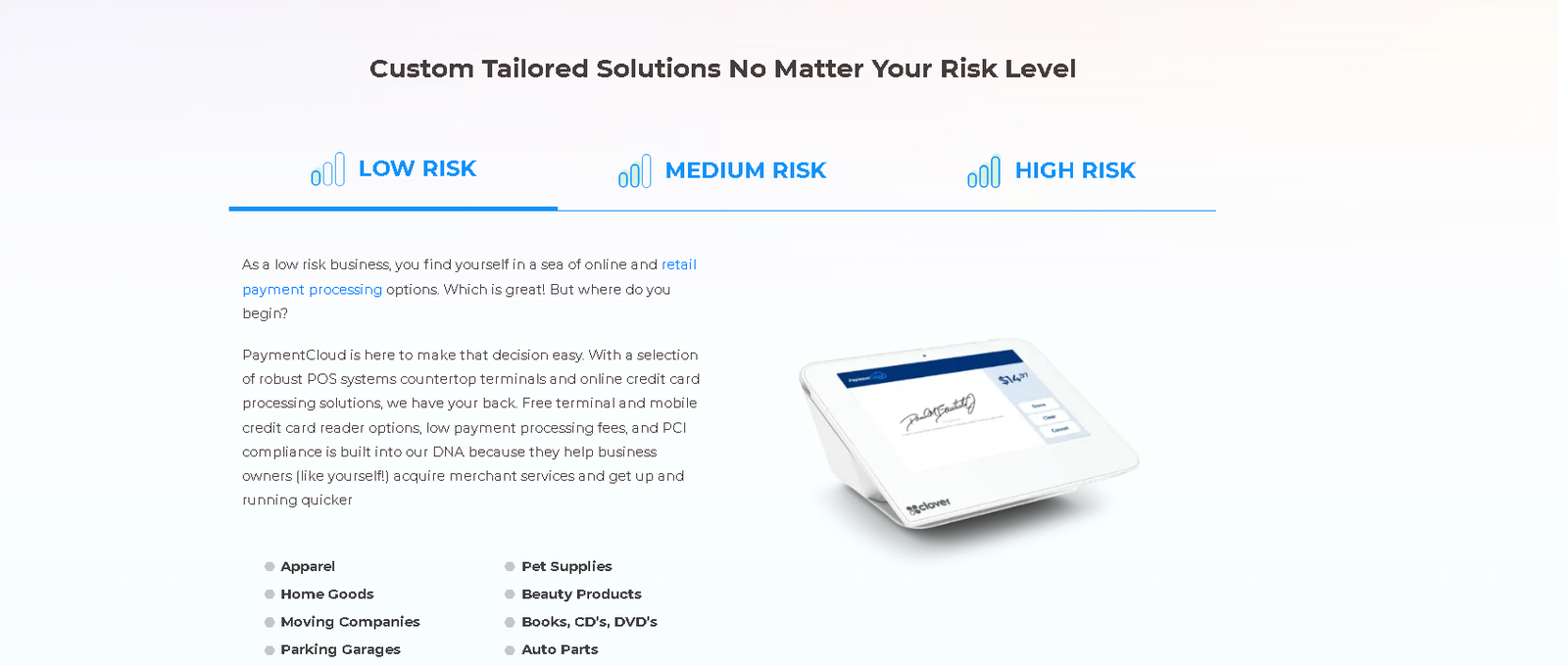
Payment Cloud is known for its specialization in high-risk payment processing. They provide tailored solutions for industries such as e-commerce, adult entertainment, online gaming, CBD, and more. Their goal is to offer flexible and reliable payment processing solutions for businesses that may have difficulty finding traditional payment processors willing to work with them.
Payment Cloud is a strong option for high-risk businesses that need specialized payment processing solutions. Their focus on serving industries with higher risk profiles, combined with flexible solutions and comprehensive support, makes them a valuable partner for businesses that might struggle with traditional payment processors. However, potential customers should be aware of the possibility of higher fees and may need to engage directly with Payment Cloud for detailed pricing and plan information.
| POS equipment | Free Payanywhere credit card reader included, with additional POS hardware available for purchase. |
| Payments methods accepted | Credit and debit cards, digital wallets, ACH, bank transfers, and cryptocurrency. |
| Payout times | 48 hours |
| Contract length | 2-year contract with a $495 early termination fee. |
| Customer support | Email and phone support available Monday to Friday. |
| Security | Level 1 PCI compliance, tokenization, end-to-end encryption, and advanced fraud detection and prevention. |
What is PaymentCloud?
PaymentCloud is a payment processing service designed for businesses of various sizes and industries. It provides solutions for handling transactions through credit/debit card payments, digital wallets, ACH transfers, and other methods. PaymentCloud offers features such as POS equipment support, customizable payment solutions, and a focus on security and reliability. It aims to cater to the needs of businesses by providing flexible contract options, efficient payout times, and robust customer support.
Services Offered
PaymentCloud offers a range of services to facilitate seamless payment processing for businesses. These include:
Payment Processing: Handles transactions through various payment methods such as credit/debit cards, digital wallets, ACH transfers, and more.
Point-of-Sale (POS) Solutions: Provides hardware and software for in-store payment processing, including traditional terminals and mobile POS systems.
E-Commerce Integration: Integrates with online stores and shopping carts to enable secure and efficient online transactions.
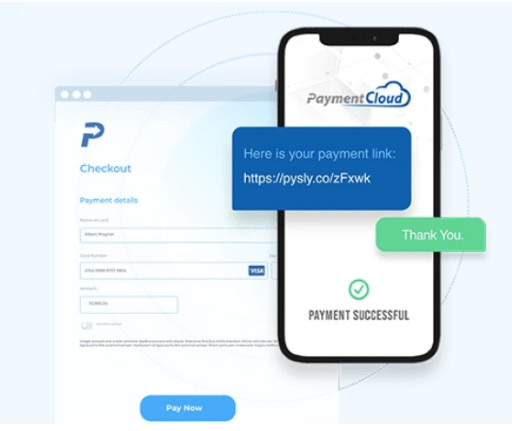
Recurring Billing: Supports subscription-based businesses with automated recurring billing features.
Fraud Prevention: Employs advanced security measures and fraud detection tools to protect against fraudulent transactions.
Virtual Terminals: Allows businesses to process payments manually through a web-based interface, ideal for phone or mail orders.
Mobile Payments: Offers solutions for accepting payments via mobile devices, enhancing flexibility for businesses on the go.
Reporting and Analytics: Provides detailed reporting and analytics tools to track sales, monitor transactions, and gain insights into business performance.
Customer Support: Delivers 24/7 customer support for technical assistance, integration help, and general inquiries.
Dependable Credit Card Transactions with a Varying Past
PaymentCloud is known for providing reliable credit card processing services with a reputation for adaptability and flexibility. However, it has a mixed history in terms of customer feedback and industry reputation. Here’s a summary:
Strengths:
Reliable Processing: PaymentCloud offers dependable credit card processing with a strong focus on uptime and performance.
Versatile Solutions: The platform supports a wide range of payment methods and POS equipment, catering to various business needs.
Advanced Security: Utilizes robust security measures to protect sensitive transaction data.
Challenges:
Mixed Reviews: Some users report challenges with customer service and contract terms, leading to varied experiences.
Industries Served: PaymentCloud is known for working with high-risk industries, which can sometimes lead to higher fees or stricter terms.
An Excellent Processor for Merchants at Mid-to High-Risk
Choosing the right credit card processor can be challenging, especially for high-risk businesses. These businesses often encounter longer approval times, higher fees, and potential rejection. PaymentCloud positions itself as a reliable solution for mid- to high-risk businesses that may face difficulties elsewhere.
After thoroughly researching PaymentCloud and its competitors, including analyzing hundreds of customer reviews, I can confidently state that PaymentCloud provides dependable service for high-risk merchants.
With an impressive 98% approval rate, PaymentCloud also offers free, personalized support to assist customers with the application process, achieving PCI compliance, and resolving issues swiftly. Once onboard, merchants gain access to a variety of e-commerce and in-store payment features, the option to apply for business funding, and more.
While most merchants using PaymentCloud seem satisfied with their agreements, the company does not publicly disclose its pricing information, making it harder to assess whether it offers the best value for your business. This lack of transparency is common among providers for mid- to high-risk merchants, as contracts are highly customized. Nonetheless, PaymentCloud appears to offer competitive deals overall.
FEATURES |5.0| 




PaymentCloud Provides Comprehensive Solutions for Your Business
PaymentCloud delivers a complete range of features suitable for all types of merchants. Whether you process payments in person, online, or both, PaymentCloud likely has the tools you need to maximize your business’s potential.
Free Equipment for In-Person Transactions
PaymentCloud offers a variety of hardware for in-person card transactions. Whether you require a full POS kiosk for your physical store, a wireless terminal, or a mobile credit card reader, PaymentCloud has you covered. All terminals support EMV and NFC technology, and all mobile readers are compatible with both iOS and Android devices.
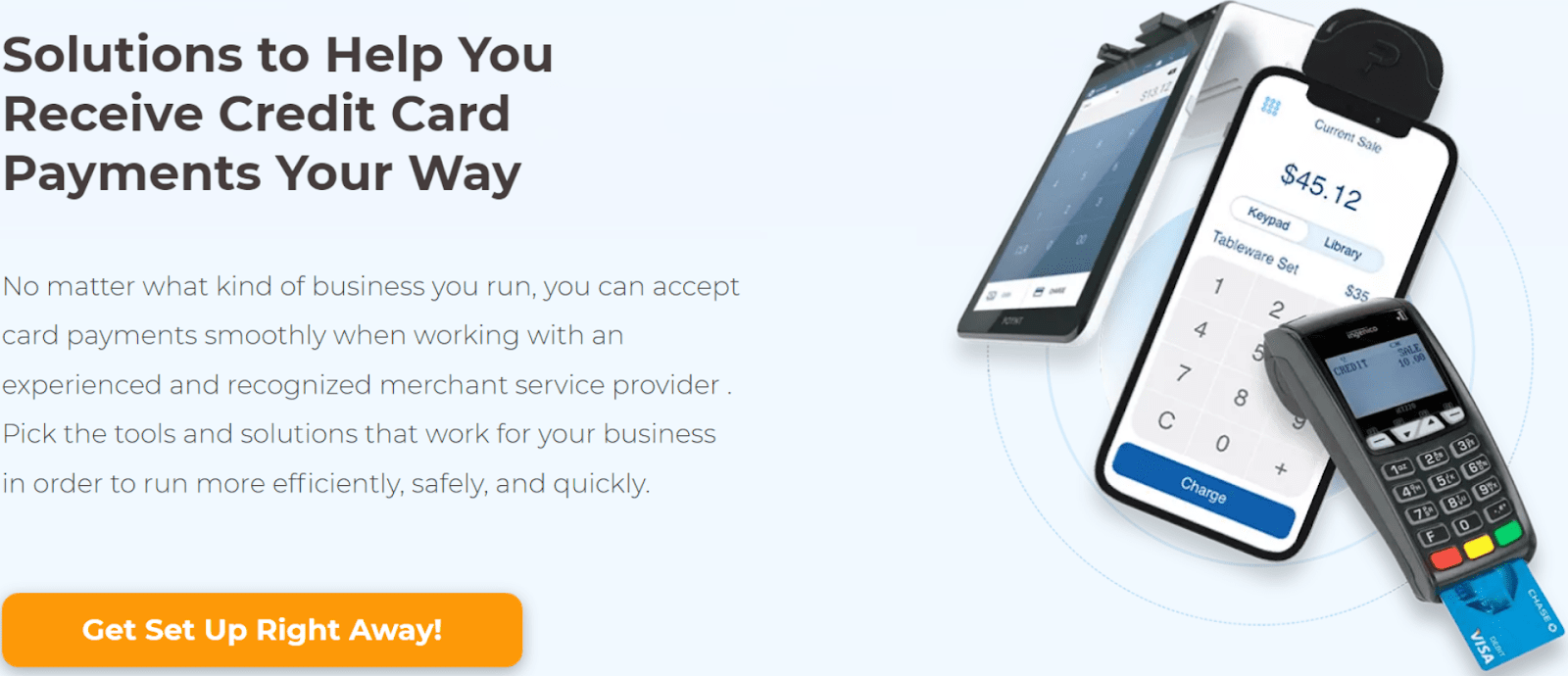
The equipment provided is free for the duration of your contract, but you must return it if you cancel your PaymentCloud account. Alternatively, you can negotiate to purchase the hardware outright from the beginning. Additionally, if you already own a reader or terminal, PaymentCloud will reprogram it for you at no cost.
Effortless and Secure E-Commerce Features
For businesses handling card-not-present transactions, PaymentCloud offers free, same-day setup for e-commerce tools like virtual terminals and payment gateways.
With PaymentCloud’s API, you can easily integrate it with a wide range of e-commerce platforms like Shopify and BigCommerce. However, integration can be less seamless if your store is built on Wix or Squarespace.
PaymentCloud provides a secure payment gateway along with fraud and chargeback prevention services, which are especially valuable for high-risk e-commerce merchants. The APIs also allow you to create customized connections with any other software you use.
Assistance with a Vast Selection of Payment Options
PaymentCloud allows you to accept a vast array of payment methods, including debit and credit cards, e-checks, ACH and MOTO payments, Apple Pay, and even cryptocurrency. The only notable exception is PayPal, though PayPal payments can still be processed through Paysley.
The selection of supported cryptocurrencies is particularly impressive. Payments using well-known coins like Bitcoin, Ethereum, Monero, and others are made possible by PaymentCloud.
Regardless of the payment method, you can expect payouts within 48 hours after the transaction is completed.
Boost Your Business with a Variety of Funding Options
PaymentCloud offers merchants convenient access to financial assistance when needed. By choosing PaymentCloud for your payment processing needs, you also gain access to various funding opportunities designed to support your business. While this service is secondary to their primary offerings, it is efficient and allows qualifying merchants to apply for and receive funds within an average of 24 hours.
PaymentCloud’s funding options cater to almost every business need, whether you’re seeking an asset-based loan, require immediate funds through a bridge loan, or need a more flexible solution like a business line of credit.
These funding services are designed to complement PaymentCloud’s main focus on payment processing. They ensure that businesses not only have the tools to manage transactions effectively but also the financial support to thrive and grow when additional resources are required.
Popular Credit Card Processing
PROS AND CONS OF PAYMENTCLOUD
Pros of PaymentCloud
Wide Range of Payment Solutions
Supports various payment types, including credit cards, ACH, and eChecks.
High Risk Merchant Services
Specializes in high-risk industries that other processors might avoid.
Flexible Integration Options
Cons of PaymentCloud
Higher Fees
Transaction fees and setup costs can be higher than some competitors.
Customer Service Issues
Some users report challenges with customer support responsiveness and quality.
Flexible Integration Options
Additional Features
PaymentCloud offers a comprehensive suite of features designed to accommodate diverse business needs in payment processing. Its platform supports various payment methods, including credit/debit cards, digital wallets, and ACH transfers, ensuring flexibility for both in-store and online transactions. PaymentCloud also provides robust point-of-sale (POS) solutions, including traditional terminals and mobile POS systems, along with virtual terminals for manual transaction processing. Additionally, it integrates seamlessly with e-commerce platforms, enabling businesses to manage online sales efficiently. Features such as recurring billing and detailed reporting further enhance its utility for businesses with subscription models or those seeking in-depth sales insights.
In terms of security, PaymentCloud prioritizes the protection of sensitive payment information with advanced encryption and compliance with PCI-DSS standards. The platform is also equipped with fraud prevention tools to safeguard against fraudulent activities. Customer support is available 24/7, offering assistance for technical issues, integration help, and general inquiries. While PaymentCloud is noted for its reliable processing and adaptable solutions, users should review recent feedback and terms to ensure alignment with their specific needs and industry requirements.

Equipment at No Cost for Card-Present Transactions

A range of hardware is available from PaymentCloud for card-present transactions. PaymentCloud can provide you with a complete point-of-sale (POS) kiosk for your physical business, a wireless terminal, or even a mobile credit card reader. Every terminal is NFC and EMV compliant, and every mobile reader works with both iOS and Android.
During the time of your contract, the equipment is free; however, if you decide to cancel your PaymentCloud account, you will have to return it. Additionally, you can bargain for the upfront complete purchase of any gear. Additionally, PaymentCloud will reprogram any reader or terminal you already own at no cost to you.
Simple and Secure Features for Online Shopping
PaymentCloud provides free same-day deployment of e-commerce features including virtual terminals and payment gateways if you handle card-not-present transactions.
You may connect PaymentCloud with a wide range of e-store builders, including Shopify and BigCommerce, by using its API. However, if you used Squarespace or Wix to build your store, integration won’t go as smoothly.
For high-risk e-commerce businesses, PaymentCloud’s secure payment gateway, fraud and chargeback protection services are particularly helpful. You may also easily develop customized connections to any other program you already use with PaymentCloud’s APIs.
EASY OF USE |5.0| 




1. PaymentCloud Assists You Throughout: PaymentCloud strives to streamline the onboarding procedure. However, the length of the screening procedure varies based on your level of risk and the proof you have available.
2. How to Begin Using PaymentCloud: Visit PaymentCloud’s website and select the “APPLY” button located in the top-right corner to create an account. After that, you’ll be sent to an application page where you’ll need to provide your complete name, phone number, email address, and length of company.
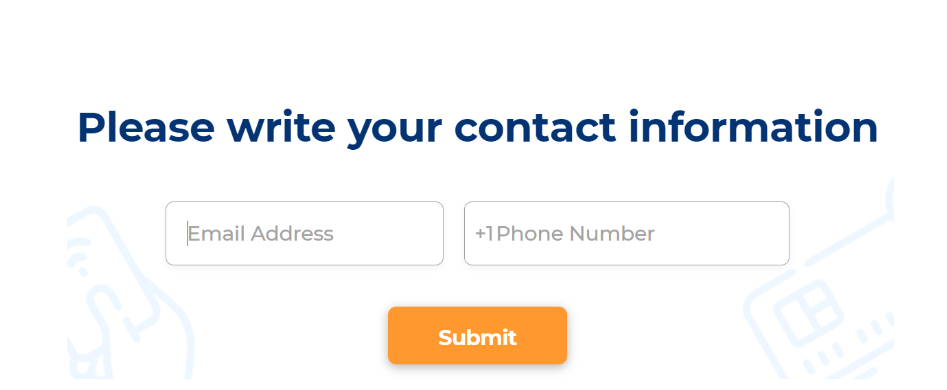
3. A Committed Account Manager to Help You with The Procedure: The level of committed assistance that PaymentCloud provides is one of its most welcome surprises.
4. Numerous Integrations with Well-Known Business Software Programs: You most likely utilize a variety of software programs as a merchant to handle client contacts, projects, website development, and other tasks.
PaymentCloud Supports You Every Step of the Way
PaymentCloud aims to make the onboarding process as smooth as possible. However, the vetting process can take anywhere from a week to a month, depending on your risk level and the documentation you provide. If you need to start accepting payments quickly, other processors serving high-risk businesses might approve applications more quickly, sometimes within 2-24 hours.
PaymentCloud offers a committed support team to help you through the full process if you run into any problems. Once approved, merchants report a fast and easy onboarding experience with PaymentCloud.
Getting Started with PaymentCloud
To open an account with PaymentCloud, visit their website and click the “APPLY” button in the upper-right corner. This will take you to an application page where you’ll need to enter your full name, email, phone number, and how long you’ve been in business.
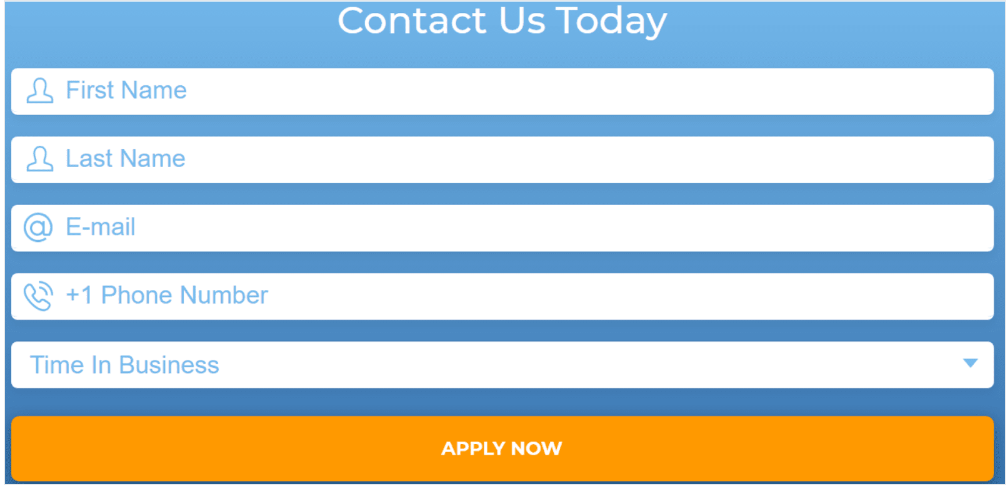
After submitting your application, you’ll be directed to a “thank you” page. A customer support representative will contact you within one business day (usually sooner if you apply during business hours) to guide you through the process of opening a merchant account.
The “thank you” page will display a list of required documents. If you’re missing any of these documents, it’s helpful to check PaymentCloud’s FAQ, where you’ll find alternatives and general information about the application process. Alternatively, you can call PaymentCloud’s customer support hotline for specialized assistance with signing up.
Dedicated Account Manager to Guide You Through the Process
One of PaymentCloud’s standout features is the level of dedicated support it provides. When you first reach out to customer support, you’ll be assigned a personal representative who will assist you throughout the entire sign-up process, helping you resolve any issues that arise.
This personalized approach has led many merchants to report positive experiences with PaymentCloud’s sales representatives. Setting up your card processor becomes much simpler when you have someone dedicated to guiding you every step of the way.
Hundreds of Integrations with Popular Business Software
As a merchant, you likely use various software tools to manage projects, client relationships, website development, and more. Numerous well-known systems, like Hubspot, Slack, Shopify, WordPress, and others, are integrated with PaymentCloud.
These integrations can be incredibly useful. For instance, the Slack integration allows you to automatically send invoices through your Slack channel, while the WordPress integration helps connect your virtual terminal to your existing website.
However, keep in mind that while PaymentCloud caters to high-risk industries, you must ensure that your business complies with the terms of service of any third-party software you wish to integrate with. Businesses that may need to be extra cautious include those in adult entertainment, gun sales, and CBD.
PRICING |4.1| 




Like many high-risk processors, PaymentCloud doesn’t publicly reveal its costs, as they will vary from merchant to merchant. You should budget for a monthly charge in addition to a flat cost and a % markup on each transaction if you use PaymentCloud to handle your credit card processing.
In response to a request for comment, a PaymentCloud representative stated that, regardless of risk level, businesses pay a monthly cost of about $15, with greater per-transaction markups for higher-risk merchants. In general, you should budget around 2.1% + 15¢ for low risk transactions, 2.7% + 15¢ for medium risk transactions, and 3.95% + 15¢ for high risk transactions. Recall that payments made with a card that is not present incur higher transaction costs.
These numbers appear to be in line with the majority of client ratings, while one shop claimed to be spending $80 a month. In the end, the precise costs you incur will be determined by your industry, specific risk tolerance, and additional variables.

PaymentCloud charges a number of “hidden fees,” despite the fact that its plan and transaction price are competitive for organizations with moderate to high risk. Your plan may charge minimal fees for features like voice verification, batch processing, address verification, and electronic cash transfers—things that not all processors offer. I also discovered that the Authorize.Net or NMI payment gateways cost $19.95, which is significantly more than those of its rivals.
Reasonable Rates for High-Risk Merchants, but Watch Out for Extra Fees
As with many high-risk processors, PaymentCloud doesn’t publicly list its fees, as they can vary from merchant to merchant. If you choose PaymentCloud for your credit card processing, you can expect to pay a monthly fee along with a percentage markup and a flat fee per transaction.
When asked for details, a PaymentCloud representative indicated that the monthly fee is typically around $15, regardless of risk level, with higher per-transaction markups for higher-risk merchants. Generally, you can expect to pay approximately 2.1% + 15¢ per transaction if you’re low risk, around 2.7% + 15¢ if you’re medium risk, and about 3.95% + 15¢ if you’re high risk. Keep in mind that transaction fees are higher for card-not-present payments.
These estimates align with most customer reviews, although one merchant reported paying $80 per month. Ultimately, the exact fees you incur will depend on your business type, risk level, and other factors.
While PaymentCloud’s pricing is competitive for mid and high-risk businesses, there are several “hidden fees” to be aware of. Depending on your plan, you may encounter small charges for electronic fund transfers, address verification services, voice verification, and batch processing—fees that not all processors impose. Additionally, there is a $19.95 charge for using the Authorize.Net or NMI payment gateways, which is significantly higher than what competitors offer.
It’s important to discuss rates and inquire about additional fees during the sign-up process. PaymentCloud emphasizes that merchants can—and should—negotiate fees to secure the best deal for their business.
COMPLIANCE & SECURITY |5.0| 




PaymentCloud is a payment processing provider that specializes in working with high-risk industries. They offer various services to help businesses accept payments, including credit card processing, ACH payments, and more. For security and compliance, PaymentCloud typically focuses on:
PCI-DSS Compliance: Ensuring that all transactions meet the Payment Card Industry Data Security Standard (PCI-DSS) requirements to protect cardholder data.
Fraud Prevention: Implementing tools and practices to detect and prevent fraudulent transactions.
Data Encryption: Using encryption protocols to secure data during transmission and storage.
Regulatory Compliance: Adhering to relevant financial regulations and laws, including those specific to high-risk industries.

Extra Security Measures
PaymentCloud applies point-to-point encryption and tokenization to each transaction it performs. This indicates that every step of the payment processing procedure protects sensitive data from hackers.
In addition, PaymentCloud provides services for IP tracing, automated fraud warnings, brief payment halts, and other fraud prevention and protection measures. Even technologies for automatically identifying chargebacks and determining their root causes are included. Furthermore, according to PaymentCloud, you may win chargeback disputes up to 70% of the time.
Customer Support
Although timely and helpful, support isn’t always available. All the time.
PaymentCloud provides a limited number of help channels. The lack of live chat is noticeable. Customers who already have an account can use the website’s “contact” area to file a ticket for email help. Otherwise, PaymentCloud’s toll-free line is available to both existing and prospective clients. In any case, customer service is only open from 7:00 to 18:00 PST, Monday through Friday.
PaymentCloud makes up for its restricted channel availability and round-the-clock assistance with its supportive staff. I had to phone PaymentCloud’s help line several times because their website lacked a lot of the information I needed for my study.

My personal sales representative was assigned to me as soon as I placed my first call. I always received a response from PaymentCloud in less than three minutes when I contacted. My representative was more than pleased to respond to my inquiries, and their messages were consistently kind, understandable, and educational.
In addition, PaymentCloud’s FAQ is an excellent source for inquiries concerning the application procedure. Ultimately, PaymentCloud’s superior service standards more than offset its limited round-the-clock availability.
CUSTOMER SUPPORT |4.0| 




Support Is Timely and Helpful, but Not Available 24/7
PaymentCloud offers a limited number of support channels, with a notable absence of live chat. Merchants with an account can submit a ticket for email support through the “contact” section of the website. Both current and potential customers can also reach out via PaymentCloud’s toll-free number. However, customer support is only available Monday to Friday from 7:00 AM to 6:00 PM PST.
Although PaymentCloud doesn’t offer 24/7 service and has fewer support channels, it compensates with its helpful and responsive support. Since much of the information needed for this review wasn’t available on PaymentCloud’s website, I contacted their support line multiple times.
From the first call, I was assigned a personal sales representative. Each time I called PaymentCloud, my call was answered within 3 minutes. My representative was always happy to assist, providing polite, informative, and clear responses.
PaymentCloud’s FAQ section is also a valuable resource if you have questions about the application process. Overall, the high quality of PaymentCloud’s support more than makes up for the lack of 24/7 availability.
Alternative LMS
Frequently Asked Question.
PaymentCloud is a payment processing provider specializing in high-risk industries, offering solutions for credit card processing, fraud prevention, and secure transactions for businesses with unique or complex needs.
To apply for an account with PaymentCloud, visit their website, fill out an application form, provide business and financial details, and wait for approval which usually involves underwriting and verification processes.
PaymentCloud’s processing fees typically vary based on business type and transaction volume, often including a percentage per transaction plus a fixed fee. Rates can be altered when submitting an application.
PaymentCloud offers customer support through multiple channels, including phone, email, and live chat, with dedicated account managers for personalized assistance and issue resolution tailored to business needs.
PaymentCloud provides security features such as PCI compliance, fraud detection tools, encryption, and secure transaction processing to protect sensitive customer information and prevent fraudulent activities.
The onboarding process with PaymentCloud generally takes a few days to a few weeks, depending on the complexity of the business and the speed of document verification and account setup
Yes, PaymentCloud allows customization of services, including tailored payment solutions, integration options, and specific features designed to meet the unique needs of different businesses and industries.
PaymentCloud contracts often feature variable lengths of agreement, monthly fees, and processing rates. It’s important to review the contract carefully to understand all obligations and terms.
PaymentCloud does not directly offer funding options but can assist with connecting businesses to funding solutions through partner networks or financial services to support growth and operations.
PCI Compliance in PaymentCloud refers to adhering to the Payment Card Industry Data Security Standards, which ensure the secure handling of credit card information to protect against data breaches and fraud.
A Credit Card Processor in PaymentCloud is a service that handles the transaction process between the customer’s credit card issuer and the merchant’s bank, facilitating payment authorization and fund transfer.
The Best Credit Card Processor in PaymentCloud depends on business needs, but PaymentCloud is known for its robust services for high-risk industries, offering competitive rates and features tailored for specific sectors.
PaymentCloud compares favorably to competitors with its specialization in high-risk industries, competitive processing rates, customizable solutions, and comprehensive support, though suitability depends on specific business requirements.
The cost of PaymentCloud varies based on business type and transaction volume, typically including a percentage fee per transaction plus a fixed amount. Custom pricing is provided during the application process.
PaymentCloud is considered trustworthy, with a reputation for reliability in high-risk payment processing, strong security measures, and positive customer feedback. However, as with any provider, due diligence is recommended.
A high-risk business in PaymentCloud is one that faces higher chances of chargebacks, fraud, or regulatory scrutiny, such as online gambling, adult services, or subscription-based models, requiring specialized processing solutions.
PaymentCloud is ideal for businesses in high-risk industries or those with complex payment needs, such as e-commerce, subscription services, and industries with high chargeback rates, needing specialized support and solutions.







